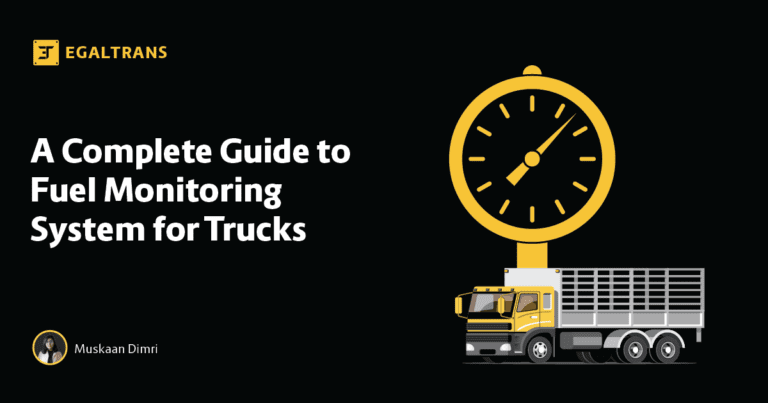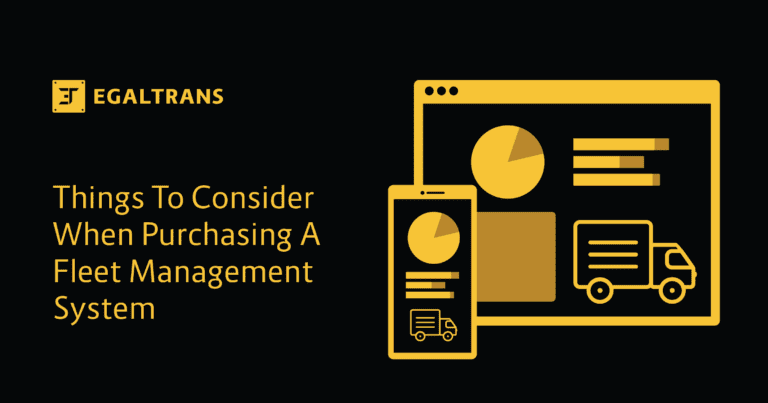The world is increasingly turning towards green initiatives and sustainable practices, and the trucking industry is no exception. One significant area where the sector can contribute to a greener environment is through monitoring and managing fuel consumption. Here, we’ll discuss the importance of fuel level monitoring and how it can play a pivotal role in reducing carbon emissions.
What is Fuel Level Monitoring?
Fuel level monitoring is a technology-based system that allows trucking companies to track the real-time fuel usage of their fleet. By integrating sensors and software, fleet managers get insights into how much fuel each vehicle is consuming, potential fuel theft, and even inefficient driving habits that might be consuming more fuel than necessary.
Why is Fuel Level Monitoring Essential for Reducing Carbon Emissions?
1. Increased Efficiency: Monitoring fuel levels can indicate when a truck is using more fuel than it should. This can be a result of several reasons, including engine problems, inefficient driving practices, or even fuel theft. By identifying these issues early on, companies can take corrective measures, thus reducing unnecessary fuel consumption and, consequently, carbon emissions.
2. Economical Driving Habits: With regular monitoring, fleet managers can identify drivers who may be engaging in practices that waste fuel, like excessive idling or aggressive driving. Training can then be provided to promote more fuel-efficient driving habits.
3. Maintenance Alerts: Consistent fuel level monitoring can also indicate when a vehicle might be due for maintenance. A well-maintained vehicle consumes fuel more efficiently, thus emitting fewer greenhouse gasses.
4. Preventing Fuel Theft: Unfortunately, fuel theft is a common issue in the trucking industry. By monitoring fuel levels closely, companies can detect irregularities in fuel consumption, which might indicate theft. Stopping this can prevent wastage and ensures fuel is used for its intended purpose – efficient transportation.
Benefits and the Drive for Sustainability
The global emphasis on sustainability has ushered in a new era of conscious consumption and proactive measures to reduce environmental impact. Burning less fuel translates directly to fewer pollutants in the air. This can lead to better air quality, especially in urban areas, reducing respiratory ailments and improving overall public health. While the initial push toward sustainability may require investment, in the long run, it leads to the creation of green jobs, stimulates innovation in green technologies, and reduces the economic strain caused by climate-related challenges.
Implementing Green Logistics
Green logistics is all about optimizing and planning logistics operations in a manner that reduces environmental and energy footprints. This can include measures ranging from energy-efficient transportation to sustainable packaging and waste management
- Evaluate the Current System:
Before transitioning to a greener approach, it’s crucial to assess the current logistics system. Identify areas where the most energy is consumed, or waste is generated.
- Opt for Fuel-Efficient Transportation:
Switching to fuel-efficient or alternative energy vehicles can significantly reduce the carbon footprint. Consider using hybrid or electric trucks or exploring biofuels for larger fleets.
- Streamline Distribution Routes:
Efficient route planning using advanced software can reduce travel distances, save fuel, and decrease emissions. Moreover, consolidating shipments can further optimize transportation.
- Sustainable Packaging:
Transition to biodegradable or recyclable packaging materials. Reducing packaging or using materials that have a lower environmental impact can substantially decrease waste.
- Invest in Modern Warehousing:
Green warehouses utilize energy-efficient lighting, heating, and cooling. Incorporating renewable energy sources, like solar panels, can further decrease the environmental impact.
This will eventually lead to reduced carbon emissions and waste, leading to a more sustainable planet.

The trucking industry, being a major consumer of fossil fuels, has a significant responsibility to lead the way in carbon emission reductions. Through fuel level monitoring, there is an opportunity not only to make operations more efficient and save costs but also to make a genuine and measurable difference in the fight against climate change. By marrying technology with eco-conscious initiatives, the fleet owners can drive forward into a greener future. And in doing so, they won’t just be saving the environment; they’ll be enhancing their brand’s reputation and visibility in an increasingly digital and eco-aware marketplace.






